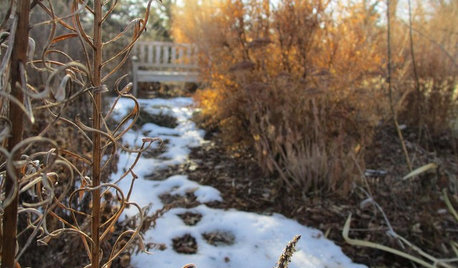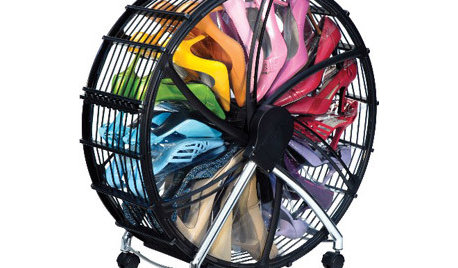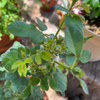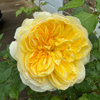I'm finished, I'm done, I quit, I give up........
aggierose
15 years ago
Related Stories

LIFEYou Said It: ‘Just Because I’m Tiny Doesn’t Mean I Don’t Go Big’
Changing things up with space, color and paint dominated the design conversations this week
Full Story
DECORATING GUIDESI'm Ready for My Close-Up: Beautiful Building Materials
Look closely, and soak up the beauty in some favorite details of fine home design
Full Story
FUN HOUZZEverything I Need to Know About Decorating I Learned from Downton Abbey
Mind your manors with these 10 decorating tips from the PBS series, returning on January 5
Full Story
WINTER GARDENING6 Reasons I’m Not Looking Forward to Spring
Not kicking up your heels anticipating rushes of spring color and garden catalogs? You’re not alone
Full Story
LIFEYou Said It: ‘I’m Never Leaving’ and More Houzz Quotables
Design advice, inspiration and observations that struck a chord this week
Full Story
CLOSETSGuest Picks: I'm Dreaming of a Wide Walk-In
20 organizing ideas to get the most out of a small closet
Full Story
INSIDE HOUZZInside Houzz: Updates to the Houzz App for iPhone and iPad
With a redesign and new features, the Houzz app is better than ever
Full Story

REMODELING GUIDESDesign Dilemma: How Do I Modernize My Cedar Walls?
8 Ways to Give Wood Walls a More Contemporary Look
Full Story





paparoseman
kinglemuelswife
Related Discussions
I'm getting discouraged.... but I don't want to give up yet.
Q
I'm not quite done...Easter
Q
OT...I'm Back...I'm Tired...But Happy My Decorating Is All Done!
Q
I'm finally done! Now I'm in the ABB club.
Q
hershigrl
carla17
aggieroseOriginal Author
estreya
jerijen
aggieroseOriginal Author
diane_nj 6b/7a
buford
jerijen
suzyr
sandy808
newjersey_rose
Jean Marion (z6a Idaho)
User
sam0ny4b
len511
sam0ny4b
buford
joanne_zone6_ma
redsox_gw
carla17
bbinpa
barbarag_happy
everyrose
Zyperiris
aggieroseOriginal Author
Maryl (Okla. Zone 7a)
buford
buford
berndoodle
aggieroseOriginal Author
aggieroseOriginal Author
gardenfanatic2003
Maryl (Okla. Zone 7a)
sandy808
buford
michael_in_chicago
aggieroseOriginal Author
michael_in_chicago
michellesg
Maryl (Okla. Zone 7a)
buford
red_rock_girl
j.song
newjersey_rose
sandy808
buford
shadygarden_CO